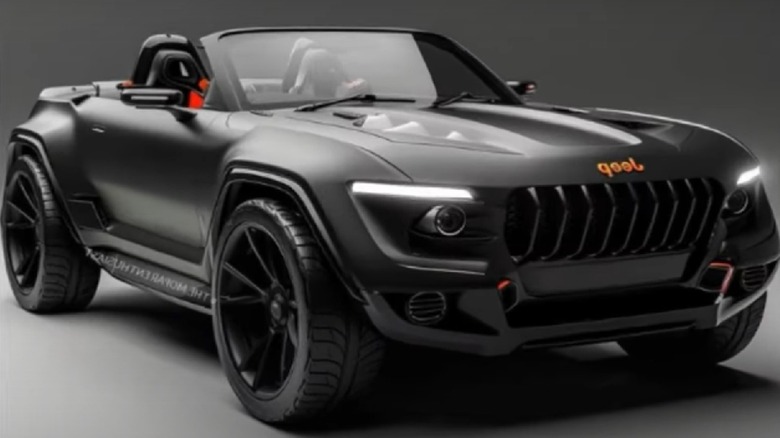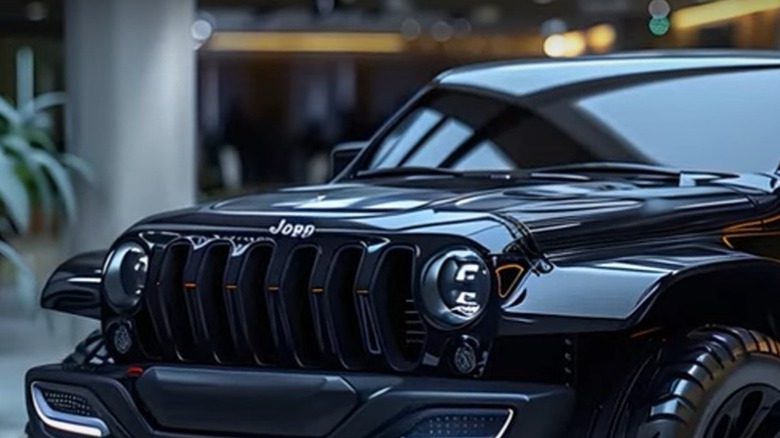Is The 2026 Jeep Roadster Real?
A video showing images of a futuristic 2026 Jeep Roadster appeared on YouTube earlier this year. The calm undertones of the video's voiceover contrast the potential excitement at the overlap of its rugged appearance and sporty stance. As wild as it appears, it wouldn't be the first crazy concept vehicle from Jeep if it were true.
The nearly three-minute video shows only a single AI, or at least artistic, rendered image of the supposed 2026 Jeep Roadster. At first, the image flips into the frame as the narrator begins with quiet tones about the rumors surrounding the 2026 Jeep Roadster as a "potential addition to the iconic Jeep lineup." As the image switches to a mirror of itself (shown above), the faceless narrator goes on to explain how the open-air roadster would be a departure from the brand's traditional off-road capable offerings.
While it's not out of the question that Jeep could offer a vehicle less capable than its legendary Wrangler and Cherokee models, the Jeep Compass (dubbed a "Well Rounded Soft-Roader"), for example, there's been no official indication of a 2026 Roadster from Jeep or its parent company Stellantis.
How do these rumors about fake car models get started?
In the past, reputable magazines would sometimes publish artist renderings of futuristic cars to fill the pages and grab their readers' attention. Those images would, of course, be accompanied by a disclaimer to let people know what they were looking at was just a fantasy.
Over the last year or so, as AI technology has gotten better and more available to the general public, there's been an explosion of AI-generated images, often without any disclaimer and sometimes accompanied by outright lies about their origins. Some of the images are pretty convincing, like the one associated with Ford bringing back the Excursion featured in a YouTube video by Information Factory 2024. However, even that image, like the one above, has issues around the automaker's logo, which appears blurry and distorted.
When trying to determine the validity of any image you find on YouTube or a less reputable source, pay attention to the lettering. Professional media outlets strive to use the best quality images available, often directly from the manufacturer, so misspelled brand names are a sure sign something is wrong.

